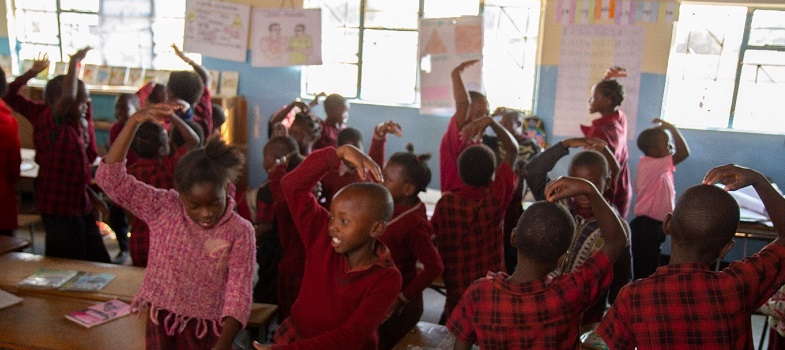Training guide
8. Knowledge, skills and values in practice
Classroom Example 2.7: Thinking about knowledge, skills and valuesListen to the audio below or read the transcript about the classroom activity carried out by teacher Rose in Grade 4 to teach Literacy. As you read/listen, think about the knowledge, skills and values that the children will learn, and make a note of these in your Teacher Notebook.
Audio transcript Rose collected a range of empty grocery packets, boxes and tins. She divided the class into groups of four or five and gave each group one or two items. She wrote the questions on the chalkboard but also read them out for the children who could not read very well. As she read them, each child wrote their own answers. Then she asked them to discuss them in their group and decide on a group answer for each question. Questions about grocery items
While the learners were working in their groups, Rose walked around and helped the children who struggled with reading. After 10-15 minutes, she went around the groups and asked each group for one answer until she covered all the questions. Then she asked them to discuss two more questions:
In the next lesson, they worked in the same groups to design the print and visual information for the packaging of a real or imaginary grocery item. (Adapted from TESSA Literacy, Module 1, Section 1, Case study 2, Activity 2 and Resource 3.) |
Knowledge: this task supports the reading of words in English. It helps children learn how to recognise capital letters, common words and numbers. They might also learn something about nutritional value.
Skills: the task helps them to develop their skills in reading. They will also need to listen to each other, help each other, and respect each other’s opinions. They will have to think independently to answer the last two questions and make critical judgements. The follow-up task will help them to develop their creative skills, writing, drawing and designing.
Values: this activity encourages co-operative working, listening to and supporting each other. It also gives the teacher an opportunity to highlight wider issues around advertising, creating an honest impression of a product and the ethics of promoting products that are unhealthy.
Activity 2.17 QuestioningWorking in pairs, read the summaries above. In your Teacher Notebook write some questions that the teacher could ask as they go around the groups, or to the whole class in order to reinforce these skills and values. |
Activity 2.18: Getting familiar with the Zambian Revised School CurriculumThink about a topic that you will be teaching next week. Working on your own, plan a classroom activity using one or more of the teaching approaches that you have practised so far. Make sure you plan some higher-order questions which will help children to think about what they are doing and why. When you have finished, swap your plan with a partner. Analyse each plan from the perspective of skills and values. What skills will the children be able to develop? What values will be reinforced? Review your plans and see if by changing what you do or the questions you ask, you could increase the emphasis on skills and values. For this next step it will be useful to have access to the Zambian Revised School Curriculum. Now, find the topic that you are teaching in the Zambian Revised School Curriculum. Look at the three columns and check that your activity teaches the knowledge, skills and values required. |
